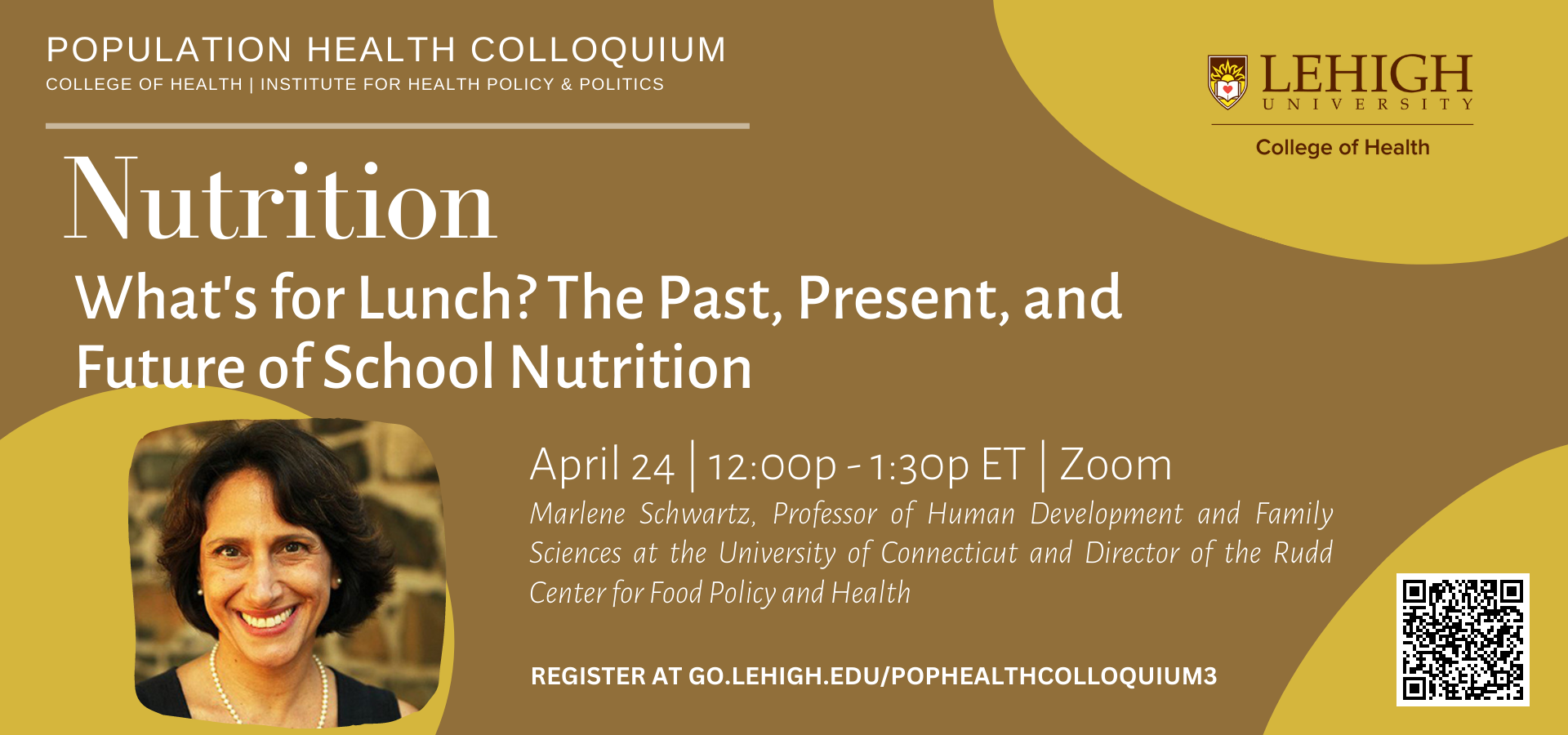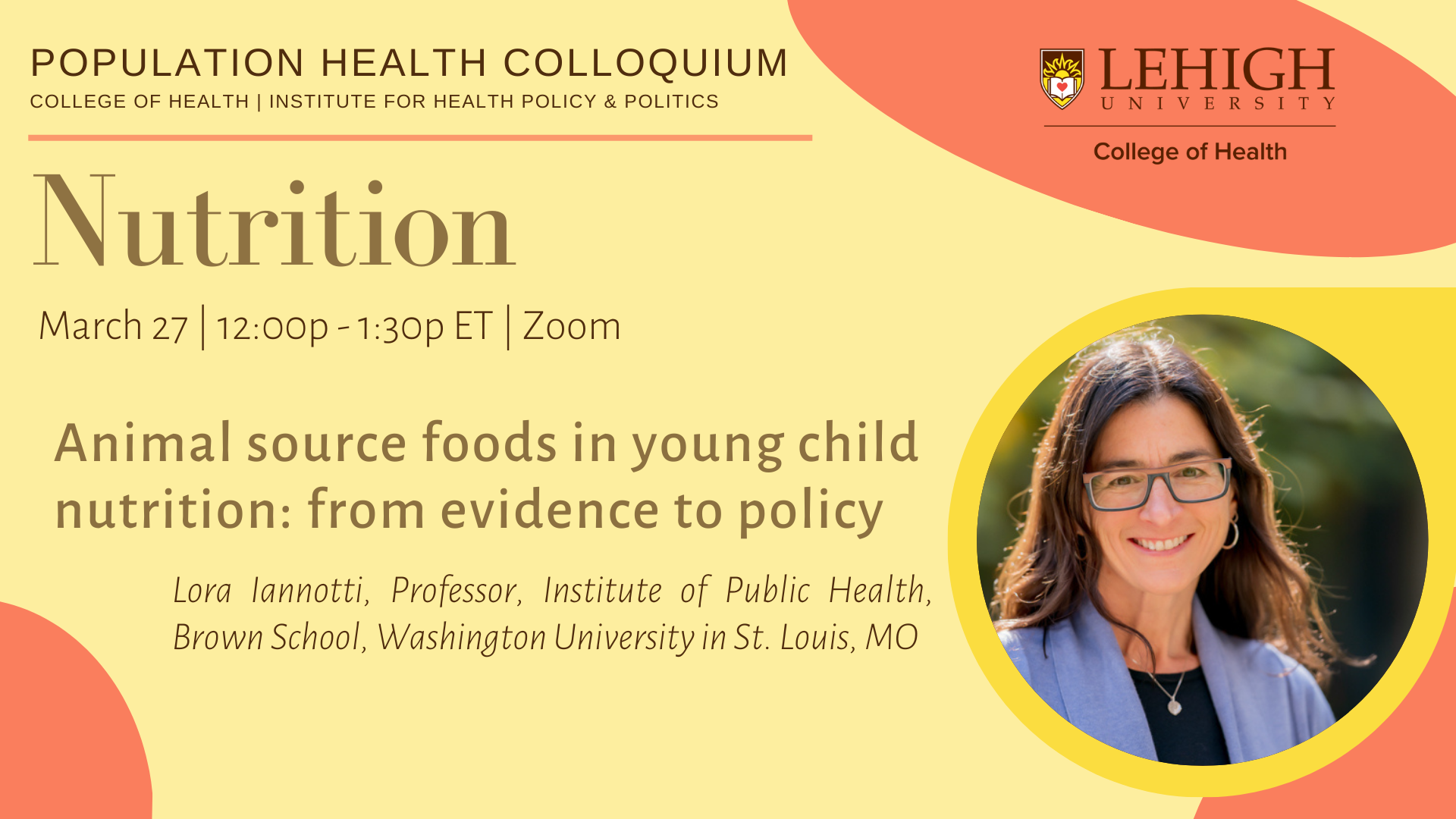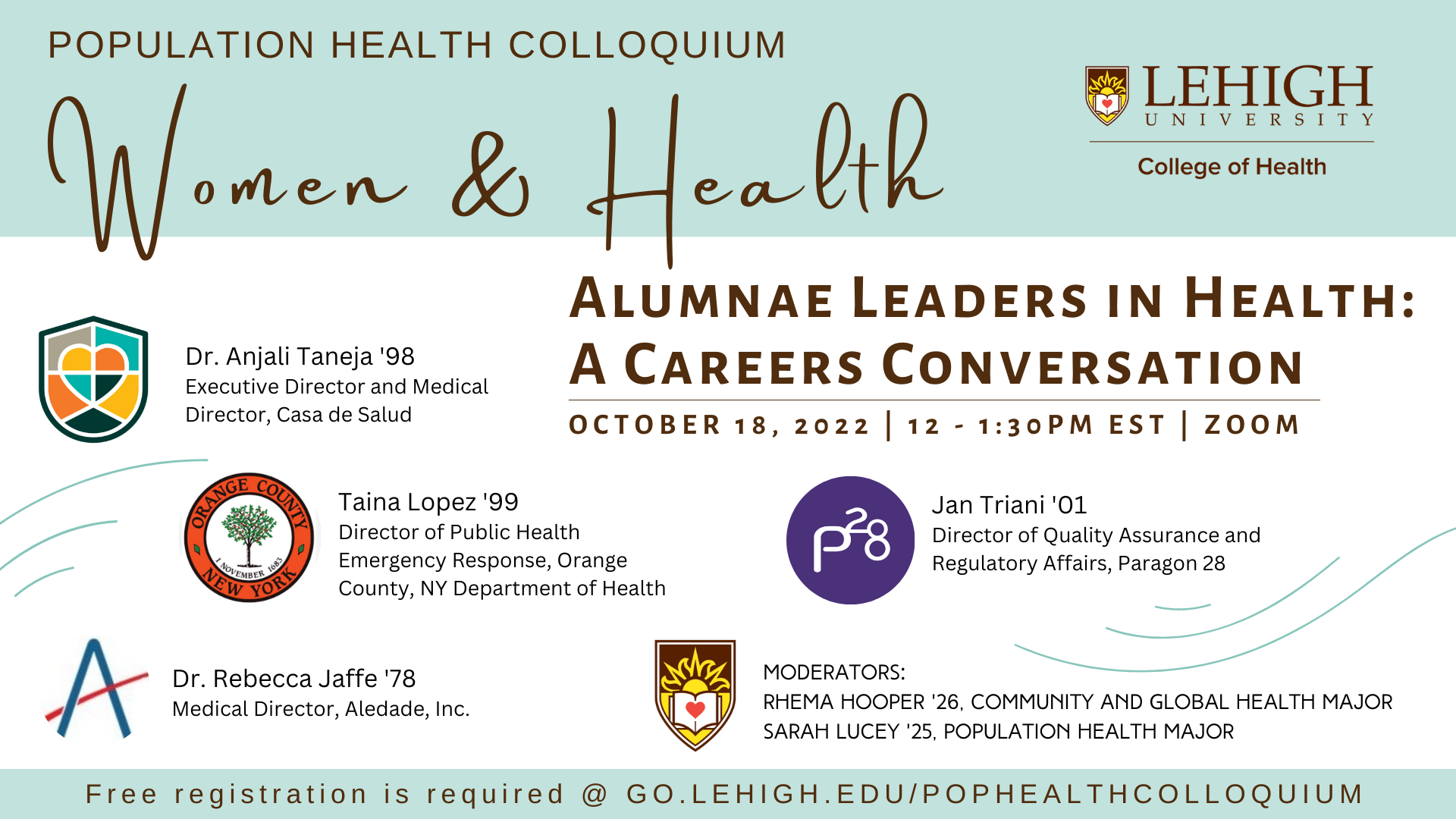
What's for Lunch? The Past, Present, and Future of School Nutrition
By: Max DeCaro, ‘25
On April 24th, 2023, Lehigh University’s College of Health and Institute of Health Policy & Politics were honoured to welcome Dr. Marlene Schwartz to speak as part of an ongoing nutrition-focused population health colloquium. Her webinar presentation was entitled: What's for Lunch? The Past, Present, and Future of School Nutrition. Dr. Schwartz is a professor and Director of the Rudd Center for Food Policy & Health at the University of Connecticut.
Dr. Schwartz was welcomed and introduced by Dr. Eduardo Gómez, the Director of Lehigh’s Institute for Health Policy & Politics. He discussed Dr. Schwartz’s research on nutrition and wellness policies implemented in schools and local food banks/communities at large. More specifically, Dr. Schwartz’s work focuses on how these policies and programs affect food security, diet quality, and health outcomes. Prior to her position at the Rudd Center, Schwartz served for a decade as Co-Director of the Yale Center for Eating and Weight Disorders. Dr. Schwartz has received extensive funding over the course of her work, including from the Robert Wood Johnson Foundation, United States Department of Agriculture (USDA), and the National Institutes of Health (NIH).
Dr. Schwartz started her lecture by discussing the Rudd Center and its work at the intersection of food policy and health, including its focus on conducting important research that provides timely answers to important policy questions. Afterwards, Dr. Schwartz discussed her history in providing family-centered cognitive behavioural therapy (CBT) sessions for those families with children who suffered from obesity and/or eating disorders. She expanded upon how, while families were more than willing to implement changes in her office, the outside structural setting of the society in which they lived made it almost impossible to actually implement these changes. From this revelation, Dr. Schwartz explained, she came to the conclusion that she would be able to do more and better work by trying to change that food environment itself. This was her motivation to delve into research on schools and food policies.
Dr. Schwartz described how addressing food within the school environment is a highly complex process because that environment is itself inherently complex. To discuss with examples, she expands upon the complexities within the National School Lunch Program, run by the United States federal government and implemented by individual states. Historically, Schwartz explains, this program was created in order to address problems of undernutrition, and thus implemented calorie minimums but not calorie maximums or limits on what types of food may be served (such as with sugar limits or processed foods). Over time, she explains, research was done which showed that this was an ineffective method of maintaining child health, and much more research has been done on this topic since, including that done by Dr. Schwartz.
In addition, Dr. Schwartz discussed the issue of competitive foods, or foods obtained in the school environment but outside of breakfasts and lunches served in the cafeteria. She goes on to say how this was a primary area of interest for her and to discuss her research into the subject. Multiple of these research projects looked into the effect of removing unhealthy competitive foods from the school environment and the resulting positive effects this had on student health, body image, and even school finances.
Finally, Dr. Schwartz addressed the political and policy implications of her research, including the past and ongoing political arguments around unhealthy foods in schools, the influence of junk food and soda companies on nutrition in schools, and policy recommendations for a healthier future within United States grade schools.

